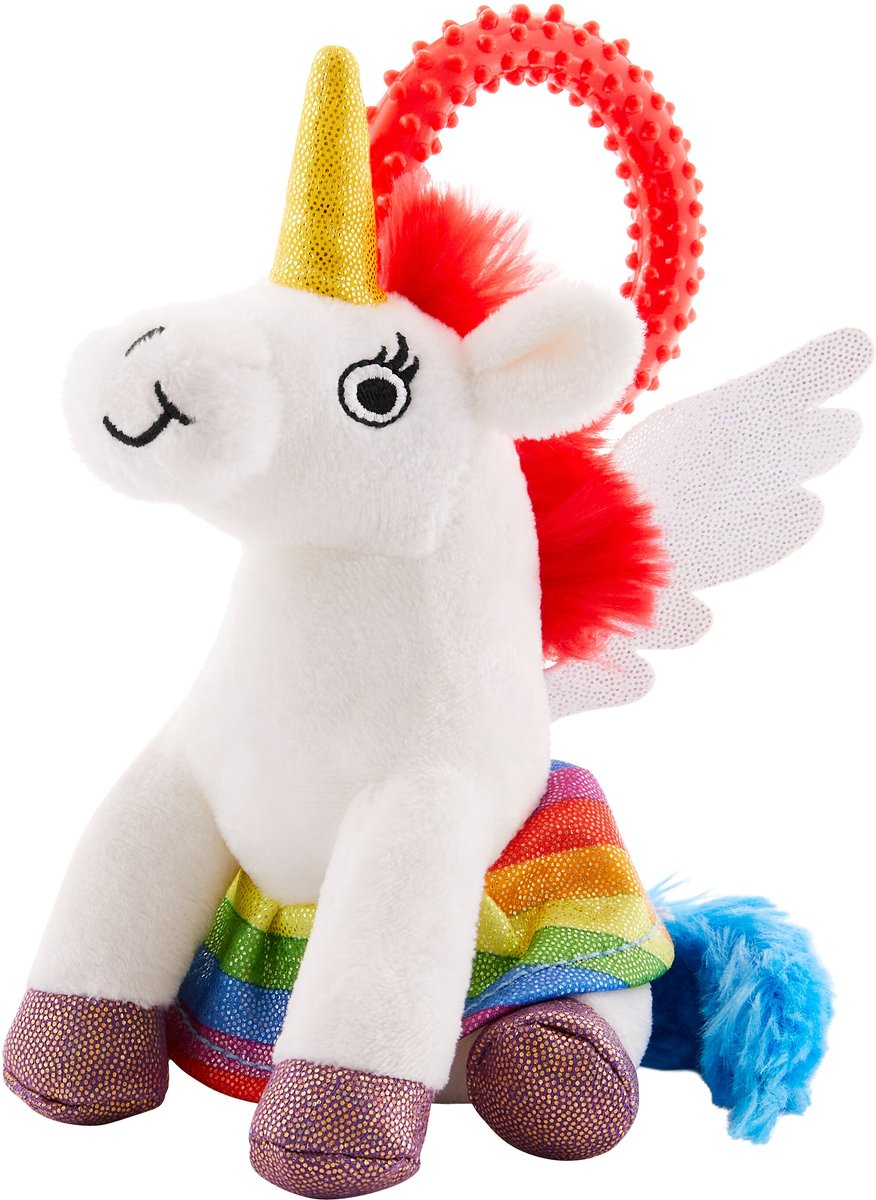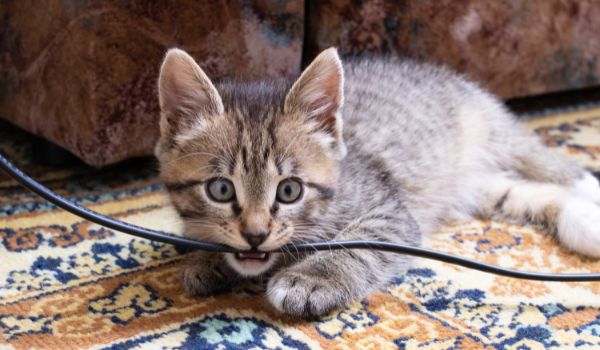Ever caught your cat attacking your favorite piece of jewelry? But why do cats bite jewelry in the first place?
Well, it is safe to say you are not the only one to have experienced this. Cats seem to have a thing for jewelry—or any metal object, for that matter. But far from being a laughing matter, it could be a serious health hazard for your unsuspecting pet as it may result in the ingestion of foreign bodies or pose a choking hazard.
Knowing is half the job when it comes to helping your ball of fur. So, let us explore first why they bite jewelry and then see what you could do to help them.
Why Do Cats Bite Jewelry?
Cats could be biting jewelry purely out of their natural curiosity for all things shiny, and the pattern may be extended to other metals and shiny objects. Biting or chewing is a common feline behavior and may serve as positive reinforcement, therefore needing some form of redirection or intervention. Closely related to the need to chew, cats may be biting not just your jewelry but anything they could come across as a means to soothe their gums during their teething phase.
Feline pica, a condition where cats try to bite, chew, and swallow a range of non-food items, could be a cause of the cat fiddling with the jewelry. Though not a tell-tale sign but some believe that metal licking could be a sign of nutrient deficiency and may warrant a trip to the vet for prognosis. Cat jewelry biting may also be an expression of destructive chewing, a feline behavior problem.
Exploring the Causes of Cats Biting Jewelry
So, you get the picture now—cats could be going after your jewelry or other metal objects for a myriad of reasons. It is now time to dive in for a deeper understanding.
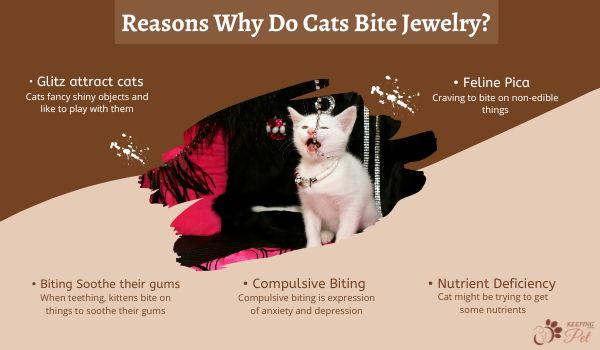
Cats Bite Jewelry Because They are Attracted to the Glitz
Isn’t it obvious that these tiny cuddly kitties are just curious and want to get to know it better? Cats fancy shiny objects and engage with them in the only way they enjoy, which is biting. If you are a new pet parent, it is important to understand that biting or chewing is normal feline behavior.
We are talking about an animal of prey who would have pounded, hunted, ripped its prey, tore it apart, and chewed the carcass with relish. Domestication may have taken away the need to find food and the adventure that ensued, but the instinct stayed nonetheless.
The behavior often gets problematic when the biting gets compulsive, exposing them to poisoning or choking risks. Glow-in-the-dark jewelry items are a hit with these cuties, and often they will sneak out to take a bit out of them. Thankfully, however, the luminescent liquid tastes awful, forcing them to spit it out immediately.
Read: hy Does My Cat Bite Me?
What to Do If Your Cat Bites Jewelry Because of Attraction to Shiny Things?
Start by ruling out any compulsive behavior or an underlying medical condition. Consulting your vet could be an excellent way to do that. Follow it up with removing metallic or glittery objects from your living room. Letting them roam in a designated area and cat-proofing it could be useful in keeping them out of trouble.
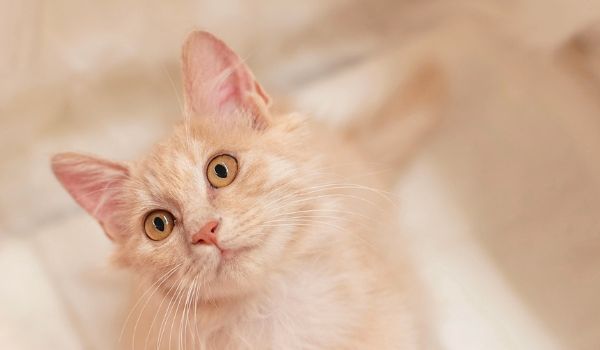
As for personal jewelry items, you need some intervention aiming to redirect their focus away from the intended object towards a toy or a treat. Reinforce this behavior by firm handling and repeating the process. This is of great importance to discourage aggressive behavior, particularly when dealing with a kitten or newly acquired cat.
If you do find that your little friend has indeed swallowed something, do not try to make it vomit at home. Seek professional help to avoid any painful situation both for yourself and your cat.
Cats Bite Jewelry to Soothe Their Gums
Biting is a natural feline instinct, and gnawing on fascinating shiny objects offers positive reinforcement. In simple words, cats like to chew, and they like glittery stuff, combine the two, and they find great pleasure and satisfaction in biting jewelry. So far, this is all playful and does not involve any compulsive behavior.
Cats Bite Jewelry Due to Behavioral Problems
While biting is indeed a feline instinct, it falls on a broad spectrum ranging from negligible to excessive biting. The latter is problematic. Compulsive biting is an expression of depression or anxiety. The problem is two-fold here: not only is the cat damaging your belongings, but it is also putting itself in the way of harm by attempting to bite potentially hazardous stuff.
Vets have reported receiving cats with serious burn marks as a consequence of trying to bite wires.
The condition manifests, obviously, in situations of distress, but some breeds have a higher susceptibility than others. Let us put it this way: some breeds like the Siamese tend to be touchy and therefore have a higher propensity to develop anxiety, triggering the compulsive destructive biting.
What to Do If Your Cat Bites Jewelry Due to Behavioral Problems?
It is critical to address the root cause before you try to come up with possible solutions. Look out for signs of distress, first and foremost being the pet not behaving like itself. Unusual patterns, loss of appetite, or display of discomfort are all signs that your pet is not okay, and it is time to seek an appointment with a vet for a diagnosis.
In some cases, you may even be asked to see a vet behaviorist to better understand the situation.
Cats Bite Jewelry Because of Pica
You have probably chanced upon the term in one of your cat community conversations. Pica is an umbrella title for conditions where companion animals, such as cats, feel a strong urge to consume non-food items. So, your cat may be not just biting but properly chewing and ingesting unusual items like plants, cardboard, wool, rubber, jewelry, and paper.
The reason we call it an umbrella term is that it is not associated with a single cause. It could start as a simple biting stint born out of sheer boredom or loneliness and escalate to a more aggressive stage. It may have been prompted because of a behavioral problem, separation anxiety, postnatal stress when removed from her kittens, a compulsive disorder, or even nutritional deficiencies.
Pets suffering from pica have their favorite materials to munch on and religiously keep going back to them. Some experts believe the only explanation for such a behavior is an immense sense of gratification these kitties derive from chewing behavior.
What to Do If Your Cat Bites Jewelry Because of Pica?
As a pet parent, all the solutions begin with you. Observe how your bundle of joy is doing, see if it is behaving abnormally and if so, why so? Signs of pica are pretty straightforward—you will notice them trying to chew on and then swallow non-edible objects. Or, if the action results in vomit, you will find foreign items in the sink. A loss of appetite could also be a sign as the foreign objects ingested block their stomach, making them feel full.
As soon as you suspect that your cat has pica, take it for an examination to identify if something is obstructing its digestive path. Then seek the vet’s opinion on how best to handle it. Removing the intended object from its access is a wonderful place to start with. Offering your company, quality playtime, mental stimulus, and behavioral redirection could also be some very useful strategies.
Cats Bite Jewelry Due to Nutrient Deficiency
Finally, one of the many reasons a cat tries to nip your jewelry could be its nutrient deficiency. Pica is one of the several symptoms of anemia. So, your pet may simply be trying to lick the metal to feel more nourished. Note that your cat’s uncontrollable fetish for metallic or other non-food objects may not be the only sign of nutrient deficiency.
Keep an eye out for other signs like lethargy, higher breathing/ heart rate, or other signs of illness.
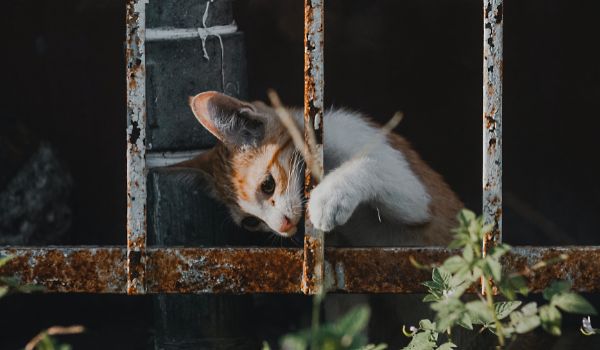
What to Do If Your Cat Bites Jewelry Because of Nutrient Deficiency?
The medical conditions associated with obsessive metal biting cannot be identified without the help of a veterinary specialist. Your best bet would be to notice the abnormal behavior, track all the other symptoms it shows and go to the vet armed with that knowledge.
If it is indeed suspected that your cat suffers from a nutrient deficiency, blood work would be sought to assess that. The vet would then be able to suggest the most suitable solution, which may include a change in diet and additional supplementation.
Final Word: Why Do Cats Bite Jewelry?
Cats bite jewelry out of their innate curiosity for shiny things. Other possible explanations include compulsive biting due to an underlying behavioral disorder, nutrient deficiency, and psychologically or medically triggered pica. All besides casual biting warrant medical attention and/or owner’s intervention.


